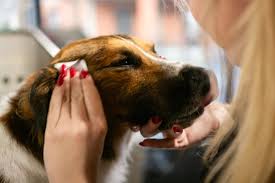How recently have you taken your pet to the veterinarian without them being ill? Probably not recently, if you’re like the majority of pet owners. Waiting until something is “wrong” before making a hasty trip to the clinic seems normal.
But here’s the uncomfortable truth—by the time symptoms show up, the disease has often been brewing for weeks or months. Suddenly, a preventive visit that could have cost $50 turns into a $1,000 emergency.
Too many pet owners undervalue the safety net provided by preventive healthcare. The first line of defence that keeps pets healthier and longer while saving you money and stress is vaccinations, regular checkups, and wellness screenings.
Why Preventive Healthcare Isn’t Optional
Consider the body of your pet as a house. Regular maintenance, such as tightening bolts, repairing leaks, and inspecting wiring, includes vaccinations and examinations. Ignoring them only causes minor cracks to grow larger until the foundation collapses, not solve issues.
Pets who receive regular preventive care typically live two to three years longer than those who do not, according to the American Veterinary Medical Association (AVMA).
That is a significant difference. It’s the difference between losing your dog to something avoidable at age 12 and watching them age gracefully at 15. Then there is the financial aspect.
For instance, if your dog survives, treating parvovirus can cost $500 to $2,000. Immunization? Not more than $30. That is a difference in life, not just in price.
Read Also: Cute and Cozy Pet Beds for a Good Night’s Sleep
The Core Vaccinations Every Pet Needs
Vaccines are not all created equal. Veterinarians categorise them as core (necessary for all pets) and non-core (recommended based on location, exposure, and lifestyle).
Ignoring essential vaccinations is like driving without brakes: catastrophe will eventually strike. Most countries have laws requiring dogs to be rabies. deadly to humans and animals alike.
Distemper, Hepatitis/Adenovirus, Parvovirus, and Parainfluenza (DHPP): Prevents highly transmissible and frequently deadly illnesses.
Normal timetable: Puppies begin at 6–8 weeks of age. Boosters every three to four weeks until sixteen weeks Depending on the brand, the first adult booster is given at one year, and then every year or every three years.
The same logic that applies to dogs also applies to cats. FVRCP (Feline Viral Rhinotracheitis, Calicivirus, Panleukopenia): Prevents serious gastrointestinal and respiratory disorders. Schedule: Kittens begin at six to eight weeks. Boosters every three to four weeks until sixteen weeks Every year or
The Power of Routine Check-Ups
Checkups are radar if vaccines are shields. They identify issues before they become more serious.
What veterinarians typically look for during a standard examination:
- Body condition and weight: Obesity causes diabetes and arthritis and reduces lifespans.
- Dental well-being: By the age of three, 70% of cats and 80% of dogs exhibit symptoms of dental disease. Bacteria spread to the kidneys and heart if treatment is not received.
- Heart and lungs: Inconsistent breathing or subtle murmurs are frequently overlooked at home.
- Prevention of parasites: Heartworms, fleas, and ticks enter covertly. The cost of treating heartworms alone can range from $1,000 to $1,500, whereas prevention costs roughly $10 per month. A check-up typically costs between $50 and $100. Waiting until ill costs hundreds to thousands of dollars on average. Therefore, the maths is straightforward: neglect, not preventive care, is the costly factor.
Common Myths That Cost Pet Owners Dearly
- Vaccines are unnecessary because my pet is indoors. Viruses and parasites don’t knock politely.
- Rabies can be contracted from a bat in your attic, parvo from contaminated shoes and fleas from a visiting dog. “He looks healthy, so why check?” Pets are adept at hiding illness, and by the time symptoms appear, the disease is frequently advanced.
- “Preventive care is too expensive.” The irony is that skipping preventive care is even more costly because it divides the costs into small, predictable bill.
Real Stories That Hit Hard
- Case 1: Because “he never leaves the backyard,” a family decided not to vaccinate their puppy against parvovirus. Their puppy got parvo after a neighbor’s dog visited. He didn’t survive despite the nearly $2,000 cost of the treatment.
- Case 2: A cat owner avoided dental cleanings, thinking dry food was enough. The cat had a serious gum infection that had progressed to the kidneys by the time it stopped eating. How much does treatment cost? Thousands. Avoidance? A few hundred spread over years.
These aren’t scare tactics—they’re everyday cases vets see.
Quality of Life: Beyond Just Dollars
Giving your pet the best life possible is the goal of preventive healthcare, not just financial savings. For you, it means more years of play, more peace, fewer crises, and less suffering.
The difference between a $20 vaccination and a $2,000 treatment is incomprehensible to your dog. All they know is if they’re ill or not. The gift they can’t ask for but will always feel is prevention.
FAQs on Preventive Pet Healthcare
- How frequently should I vaccinate my pet? Usually, core vaccines are updated every one to three years. Non-core relies on the guidance of your veterinarian.
- Are vaccinations secure? Indeed. Rare and typically minor side effects include soreness. The dangers of illness greatly exceed the dangers of immunisation.
- My pet despises the veterinarian. Is the stress really worth it? Of course. Stress in the short term is always preferable to chronic illness. In an effort to lessen anxiety, many clinics now provide fear-free visits.
- Can life expectancy be increased through preventive care? Indeed. According to studies, pets who are vaccinated and have regular checkups live longer and are healthier.
- Can a pet’s insurance cover the cost of preventive care? No. Insurance does not stop illness, but it does help with costs. By being proactive, you can avoid ever needing coverage
Final Thoughts
Pet preventive care is not an extravagance. It is the foundation of responsible ownership. Regular checkups and vaccinations are small investments that yield huge financial, emotional, and health benefits. Ignoring them seems innocuous at the time, but illnesses don’t wait for a convenient moment.
The decision is straightforward: make a small payment now or a large one later. Your pet is incapable of arguing for their health or calling the veterinarian. That is your responsibility. And the prize? More years of friendship, purrs, wagging tails, and unbroken memories.



